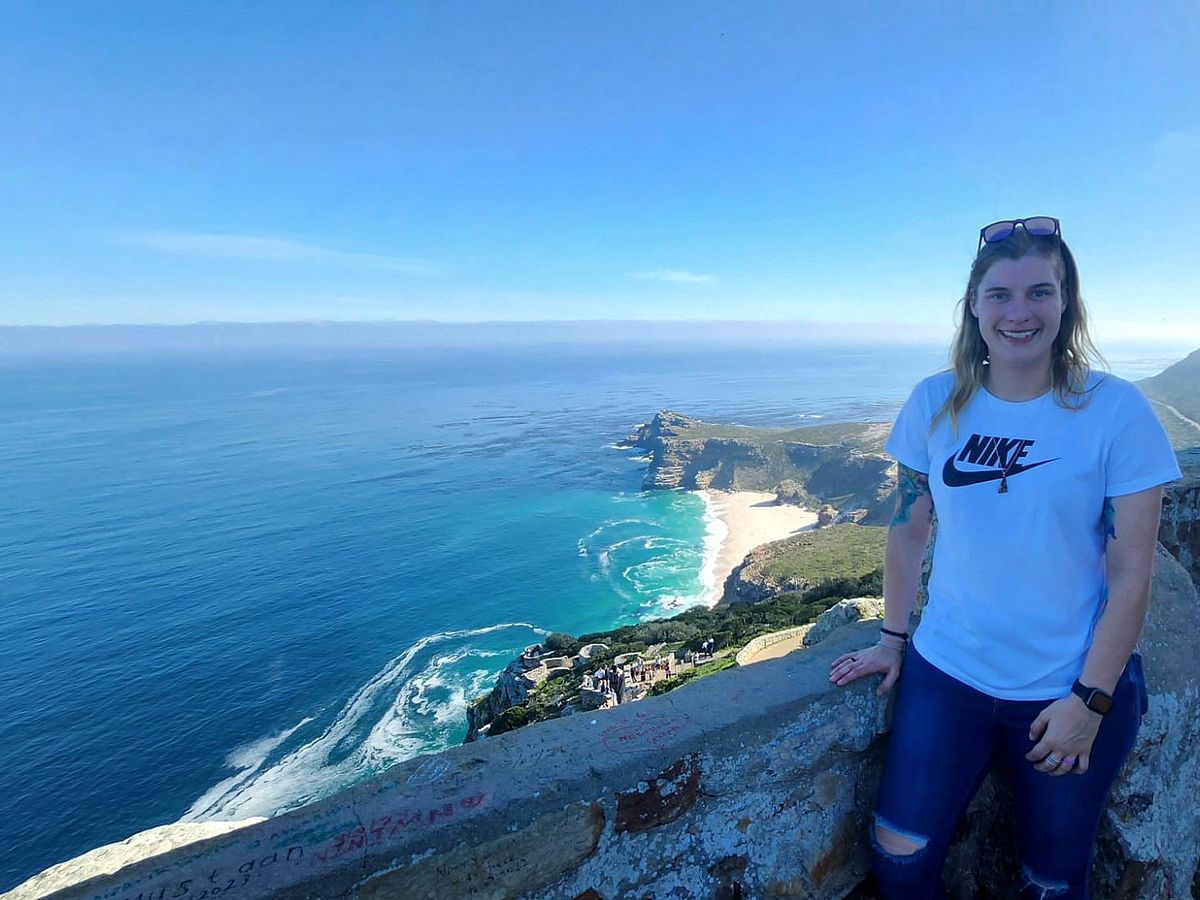An espresso with... Jana Schröder

Jana Schröder earned her bachelor's and master's degree at the University of Bremen from 2010 to 2017, specialising in marine geology and oceanography. During her master's studies, she spent an Erasmus year in Tromsø, Norway. Since 2021, she has been working for the geo-data firm Fugro, whose activities around the world include seabed surveying.
Why did you decide to study at the University of Bremen?
I’m from Bremen and so studying here was an obvious choice, also because my financial options for studying in another city were very limited. But I've known since the 10th grade that I wanted to study earth sciences. I always liked English and geography, I was interested in tectonics and physical geography. The master's programme is mostly in English. Then I kept going to the faculty’s info events, which were super good. I also knew that Uni Bremen has an excellent reputation in the geosciences. From there the decision was easy.
Then were your expectations of the university fulfilled?
Yes, the range of courses is incredibly good. At the beginning, a lot hits you at once, it’s a lot to take in. I was always at the university until 6 p.m. and had a lot to do there. Specialisation started in the third semester, for me it was marine geology, and it was really fulfilling to dive into my own areas of study. And our lecturers were actually all good.
Which professor(s) had the most impact on you?
First of all, Professor Christian Scheibner, who is no longer at Uni Bremen, he really got his subject matter across well. Then of course it was cool to attend lectures with Gerhard Bohrmann, especially after I read the bestselling novel Der Schwarm (The Swarm), where he is a character. Cornelia Spiegel-Behnke was one of the few female professors at the time. I could always follow her lectures, they were so lively. And then of course Professor Wolfgang Bach, a great educator. The way he could conjure up a complete blackboard picture off the cuff and explain the whole earth and its history at the same time was simply captivating.
How were the internships and excursions?
They were brilliant. We had to complete 12 field days. At the beginning there was the standard excursion to the Harz Mountains and then you could choose, for example, the Rhenish Massif or Scotland. You are driven off-road somewhere and let loose, to look at the stones and try to read something from them. At the beginning it was disconcerting, because as a student you don't understand much at first. It all looks different in the textbooks. But then the lecturers took us by the hand, so to speak, and taught us how to discover and interpret rock formations and how complex it all is. That was traditional geology, where you are out in nature and not just sitting in front of a computer.
What did you bring from your studies to your current job?
At Fugro, I spend 90 percent of my time on a ship, off the Maldives, the west coast of Africa or in other parts of the world. We survey the seabed to determine where subsea cables can be laid. That's mostly geophysics, which I didn't specialise in. But the general understanding of marine geology that I acquired through my studies is very important in my current job. We have to interpret the detailed data we collect against the background of marine geological conditions and then explain to our clients where a safe route is for laying cables. When it comes to identifying potential risks, this knowledge of marine geology is really crucial.
What advice would you give to students today?
A lot of students are keen to do something in research. But it’s also worthwhile, through internships for example, to look outside of science and simply do things that you’re not at all familiar with. I always wanted to get into research and thought that nothing else would do. Now I'm absolutely not in research, but I'm super happy with my job anyway. So, it makes sense to broaden your range and realistically gauge where the opportunities in the job market are.
What connects you to the University of Bremen today?
I'm always happy when I see the university on the way to my office in the technology park. Every year I go to the faculty’s Barbara Fest, which is the welcome party for “Erstis” (first-year students). For me, my time as a student was the best time of my life and I also made my best friends there. Even if it sounds a bit soppy now, coming to university was always like coming home.

